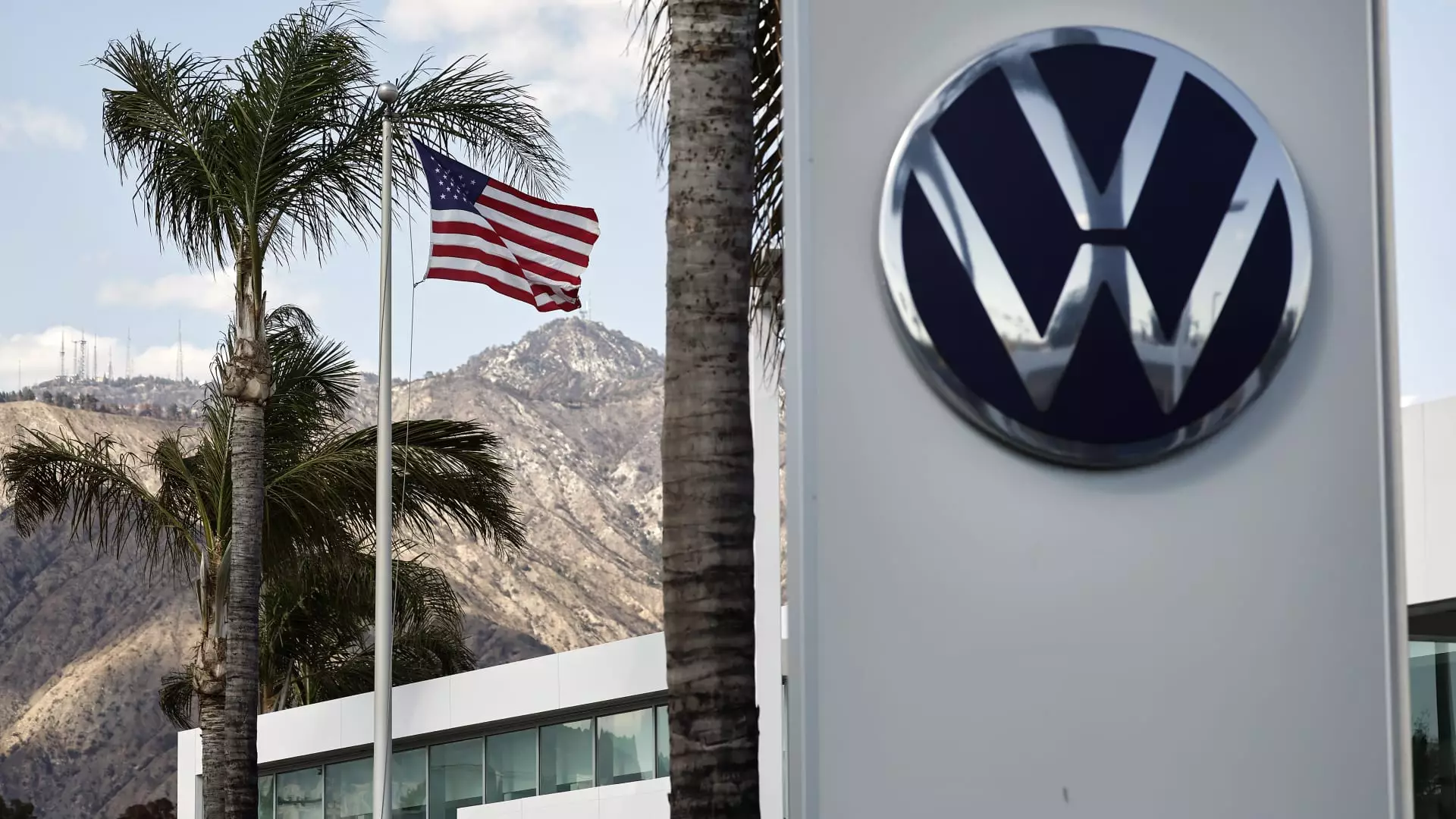Volkswagen, once a paragon of automotive success, has found itself grappling with a staggering 37% decline in operating profit for the first quarter of the year. With an operating profit now recorded at just 2.9 billion euros (about $3.3 billion), the company is undeniably feeling the strain of shifting economic tides. This drop not only highlights the vulnerability of major players in the global car industry but also serves as a grim reminder of the potential pitfalls of volatile trade policies. The company’s revenue of 77.6 billion euros did show a modest increase of 2.8% compared to last year, but it ultimately feels overshadowed by the broader implications of its dwindling profits.
The auto titan seemed to have kept pace with sales outside of China, suggesting that while certain areas of the market are resilient, the overarching concerns surrounding U.S. tariffs loom large. The stark contrast between sales increases and profit losses paints an unsettling picture—one where external pressures are suffocating the chance for growth and stability.
Precarious Forecast: A Warning from Within
Volkswagen’s cautious outlook for the upcoming quarters reflects an increasing awareness of the jagged landscape ahead. They have already revised their projections, expecting critical financial metrics, such as operating return on sales and net cash flow, to hover at the lower end of annual forecasts. Chief Financial Officer Arno Antlitz expressed the need for a strategic response to these changes, emphasizing the importance of maintaining a competitive cost base and strengthening their product range. But is this enough?
The company’s admission of “mixed” results is not just a nod to market fluctuations but rather a cry for help amidst what seems like an unprecedented tipping point for the automotive industry. With the ripple effects of President Trump’s trade policies still resonating, a genuine sense of unease permeates the organization. They are clearly navigating uncharted waters where the next misstep could spell further decline.
Disruption vs. Stability: The Tariff Tug-of-War
Volkswagen is certainly not alone in facing these external pressures; the entire automotive sector is embroiled in a precarious situation. Although President Trump’s recent executive order intended to moderate the impact of auto tariffs may offer some relief, it also exemplifies the ongoing uncertainty that looms over the industry. The continuation of 25% tariffs on imported vehicles indicates a persistent trade battle that has the potential to disrupt supply chains—a vital component of modern manufacturing.
Moreover, the idea that vehicles assembled in the U.S. can now qualify for partial tariff reimbursements highlights the complexities of American trade dynamics that are uniquely detrimental to foreign automakers. While these adjustments may seem like a step forward, they remain a mere bandage over a festering wound created by prolonged trade hostilities and protectionist narratives. Volkswagen’s share prices slipping by 0.7% in London only serve to confirm that investor confidence is wavering.
A Third Way: Finding Ground amidst the Chaos
Navigating the future of auto manufacturing demands more than just swinging the pendulum between tariffs and trade concessions; it requires a thoughtful re-envisioning of what the automotive industry can deliver in an era marked by climate concerns and technological innovation. Volkswagen has the capacity and history to lead the charge towards sustainable practices and advanced electrification efforts, yet they seem trapped in a quagmire of old-school thinking amid pressures to maintain short-term profits.
As a consumer and observer of this transformation, it is distressing to watch a brand once synonymous with reliability and forward-thinking struggle. This is not merely a financial crisis; it reflects a broader challenge confronting capitalist economies today—the balancing act between fostering fair trade practices and sustaining business growth amid global interdependence. Volkswagen could wield tremendous influence in championing a model that prioritizes cooperation and innovation. The question remains whether they can break free from their current predicaments while embracing this larger vision.
The automotive world is watching closely, and for Volkswagen, every passing day is a chance to turn this narrative around. However, as they dive deeper into the whirlpool of tariffs, political uncertainty, and fluctuating sales, the grave stakes of their next moves cannot be overstated.

